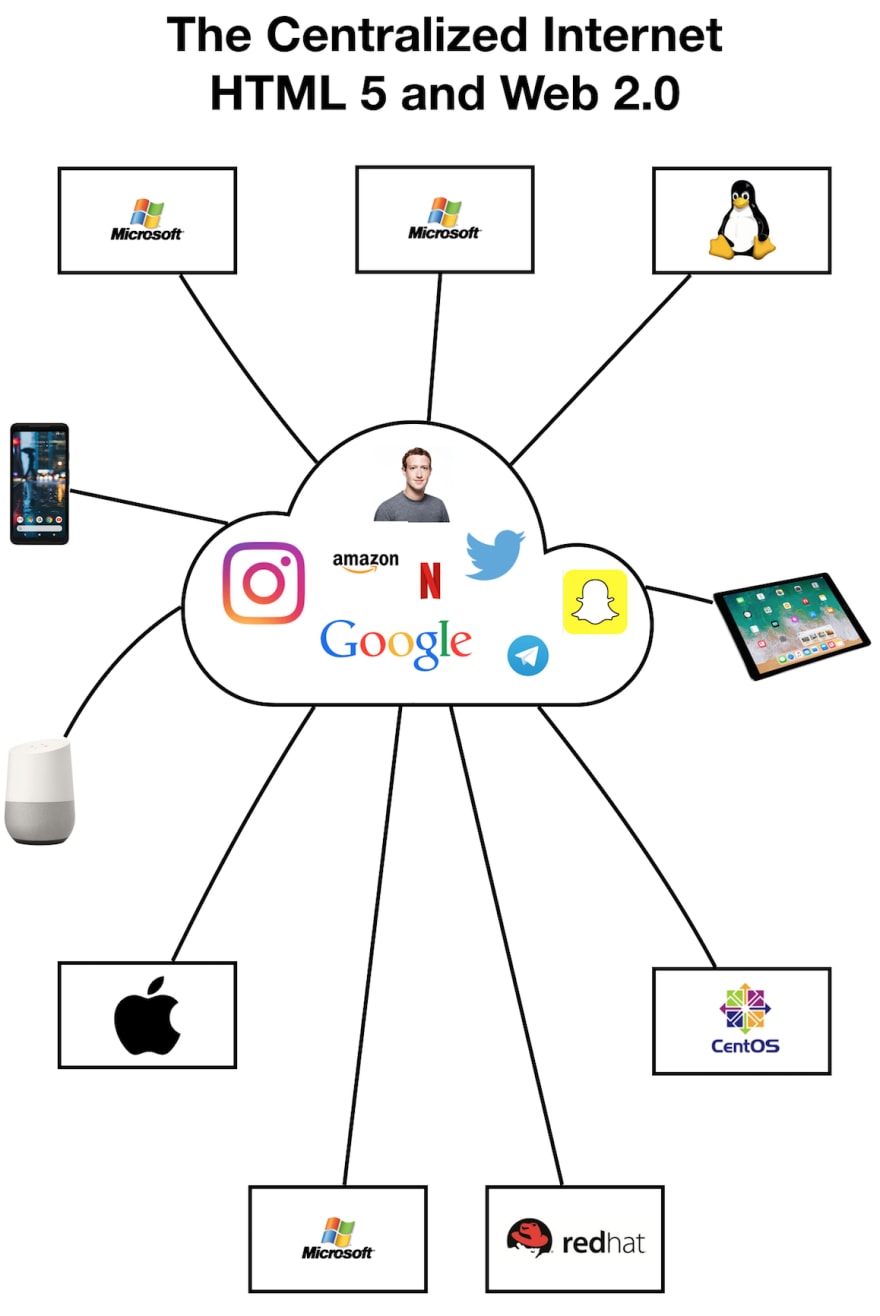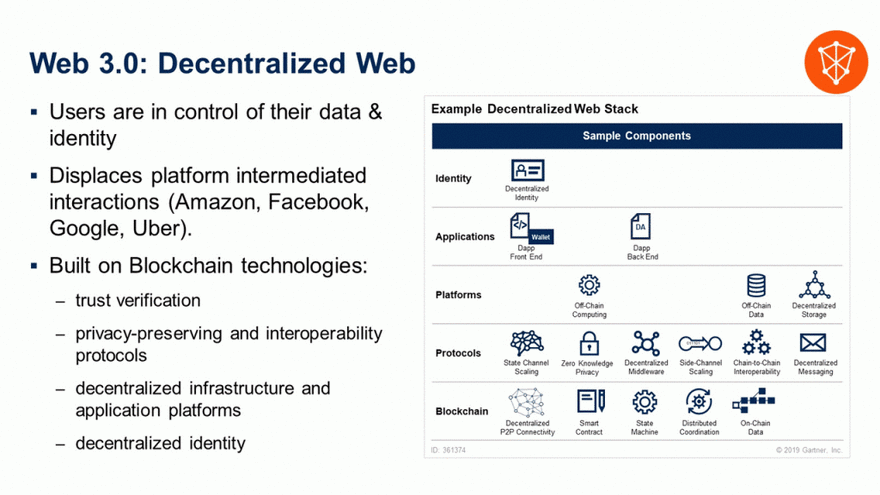25
Why Decentralised Web is a necessity?
When web first came into existence in 1989, it was decentralised. Anyone could publish their content on the internet, and users could access that content without any third party services. Communication was easy, secure and peer-to-peer.
However, with the introduction of web 2.0 in the early 2000s, people began to communicate through centralised services provided by several tech giants.
Current internet architecture is called to be centralised, lead by companies like Facebook, Google, Amazon, etc. Facebook, for example, now boasts 2 Billion monthly active users (more than China's whole population). Google is another good example; it answers 3.5 Billion requests per day.

These companies became massively dominant in their domain by two methods, that have also become the heart and soul of web 2.0
1.) Provide excellent services
2.) Free services for everybody
1.) Provide excellent services
2.) Free services for everybody
You don't have to sift through hundreds of websites to find information; instead you can utilise Google's free, fast-searching capabilities. You don't have to construct your communication channel or deal with other hassles if you want to connect and speak with others; you can do so using Facebook's services, which are also free.
The involvement of these third-party services has provided an exceptional user experience and most importantly at zero expense.
Every internet company has its own data center, where all the user's data and their monitored interactions are stored. This infrastructural centralisation raises security concerns, by giving clear target points for hackers and fraudsters.
In early 2013, Adobe originally reported that hackers had stolen nearly 38 million encrypted customer credit card records, plus login data for an undetermined number of user accounts. In December 2018, Dubsmash suffered an attack on 162 million usernames, PBKDF2 password hashes, and other personal data, all of which was then put up for sale on the dark web market. In May 2019, Canva suffered an attack that exposed details of 137 million users.
Read more here
Tech monoliths like Google and Facebook have billions of users. These users are largely unaware of what goes on behind the scenes at these companies. This Free world is a lie, users pay not with their money but with their attention. These tech giants are reaching past your wallets, spurning your money, to seize your time, which is actually your life.

Companies such as Facebook and Google dominate this user attention so massively that they are called the gatekeepers of 'information presented to users'. All major internet companies have a record of giving away user information to the government and other agencies without acquiring their consent.
The most well-known situation is the Facebook–Cambridge Analytica data scandal. We know about these companies' dark secrets thanks to whistle-blowers like Edward Snowden, Tristan Harris, and others.

A D-Web removes centralised data hosting services, using instead a peer-to-peer infrastructure. Not only will this remove any services from a third party that tracks your data, it will also secure and smooth your transaction. As a result, no single entity will be able to control or manipulate the network of systems on their will.
D-Web is expected to bring 3 major changes to global internet architecture:

Let me give some examples:
Brave Browser: It is blockchain based browser, co founded by Brendan Eich, creator of JavaScript. I have been using it for about an year now, and I absolutely love it.
DTube: A blockchain based alternative of Youtube, it has been getting lot of sensation lately. It's smooth and interactive and has potential to go further heights in near future.
EOS Dynasty: It is Blockchain based gaming platform, which has nearly 12,000 unique daily users, claiming to be the first role-playing, player-versus-player (PvP) game based on blockchain.
MakerDAO: A decentralized credit service that runs on the Ethereum blockchain platform, MakerDAO supports Dai, a stablecoin whose value is pegged to the U.S. dollar.
Well, that's all for this article. I hope I did spark a little interest in you towards decentralisation. I believe this is the biggest thing happening in tech industry that will drastically change the way we use internet in coming years.
You can read more about this at:
The Meaning of Decentralization by Vitalic Buterin
Understanding Web 3 — A User Controlled Internet by Emre Tekisalp
Evolution of Web, by Pragati Verma
What do you think about decentralisation? Is it good thing or bad? Let's hear your thoughts in the comment section.
Thanks for reading. Have a nice day.
25

